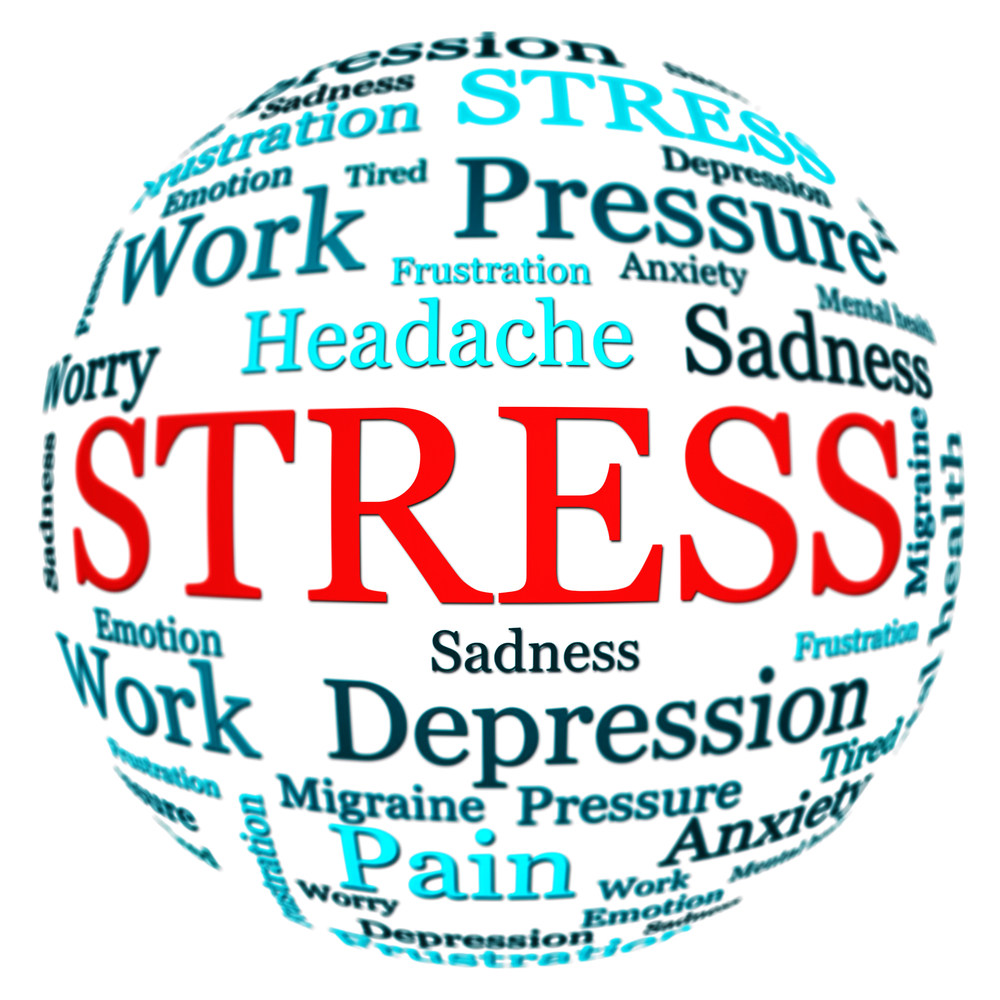Stress Aneurysm - What Happens When Life's Pressures Build
Sometimes, the daily pressures we face, the ones that seem to pile up, can feel like a heavy weight, almost like something inside us is under a lot of strain. It's a feeling that touches our physical selves, how we think and feel, and even the ways we act in the world. Knowing the common signs of this building pressure, this "stress aneurysm" as it were, can truly make a difference in how we handle it all.
Our bodies, you see, are quite remarkable, but they also react to everything around us. When we feel a lot of pressure, changes happen in almost every part of us, so it's almost like a ripple effect. This isn't just a feeling in your head; it's a very real physical experience, and it can show up in unexpected places, too it's almost.
You know, our bodies were really built to help us out, to protect us from danger. That quick burst of energy and focus is, in a way, a gift. But when that protective system is always on, always alert, well, our overall well-being can start to pay a price. That's why getting a handle on what's going on with your own stress is pretty important, actually.
- Emma Sweet
- Comfortable Low Wedge Sandals
- Kid Cudi Net Worth 2025
- Patriot Games Actors
- Nylon Tote With Zipper
Table of Contents
- What Happens When Stress Builds Up?
- The Body's Response to Stress Aneurysm
- How Does Stress Really Touch Our Bodies?
- Beyond the Physical - Stress Aneurysm and Your Mind
- Is All Stress Bad for You?
- When Does Stress Become a Problem, Like a Stress Aneurysm?
- Facing Life's Pressures - Managing Your Stress Aneurysm
- Simple Steps to Calm the Stress Aneurysm
What Happens When Stress Builds Up?
When life throws a lot at us, it's not just our minds that feel it. The signs of too much pressure can show up in so many different ways. Think about it: your physical self might start to give you little hints, or maybe your thoughts begin to race, or perhaps your feelings feel a bit more intense than usual. Then there's how you act, your behavior, which might change in ways you don't even notice at first, you know?
Recognizing these everyday signs of strain is, in a way, the first step toward getting a handle on them. It's like spotting the early warnings that something needs attention before it really gets out of hand. For example, some people might start feeling tired all the time, or perhaps they have trouble getting a good night's rest. These are subtle shifts, but they are still important messages from your system, telling you something might be off, honestly.
Our bodies are pretty interconnected, and when pressure builds, it truly affects almost every single system inside us. It's not just one part that takes the hit; it's more like a whole network feeling the effects. From the way our muscles feel to how our hearts are working, and even how our stomachs are behaving, stress touches it all. This widespread impact is why it's so important to think about what's going on with our inner workings when we feel overwhelmed, pretty much.
- Sonic Drinks Secret Menu
- Jcpenney Lynnwood
- Andrew Jason Sterling Brown
- Sherry Lewis And Lambchop
- Jimmy Kimmel Brad Pitt
The Body's Response to Stress Aneurysm
When we talk about the body's reaction to mounting pressure, to what we're calling a "stress aneurysm," we're talking about changes that ripple through nearly every internal setup. Your muscles, for instance, might feel constantly tense, almost like they're ready for a fight that isn't coming. This can lead to aches and pains that just don't seem to go away, as a matter of fact.
Then there's your breathing system, which might start to feel a bit faster or shallower than normal. It's a natural reaction, but if it keeps happening, it can make you feel out of breath or even a little lightheaded. Your heart and blood vessels, too, are very much involved, with your heart possibly beating faster and your blood pressure going up. This is a temporary boost, but over time, it can put a real strain on your cardiovascular system, you know?
Even the glands that produce hormones, your endocrine system, get into the act, releasing chemicals that prepare your body for action. Your stomach and gut, the gastrointestinal system, might also react with upset or changes in digestion. And of course, your nervous system is on high alert, which can make you feel jittery or on edge. Even the reproductive system can be affected, showing how truly far-reaching the effects of pressure can be, basically.
How Does Stress Really Touch Our Bodies?
The body's natural reaction to feeling pressured was originally set up to keep us safe, to give us that quick burst of energy to get away from danger or face a challenge head-on. It's a built-in protective measure, a pretty amazing one at that. Think about how your heart might race or your senses sharpen when you're in a tricky spot; that's your body doing its job, literally.
However, when that internal alarm system is always ringing, when it's always on alert, even when there's no immediate danger, that's when our overall well-being can start to suffer. It's like running a car at full speed all the time; eventually, something's going to wear down. This constant state of readiness can really drain your energy and make you feel worn out, you know, sort of.
The changes that happen inside us because of pressure touch pretty much every single system. Your muscles, for example, can become quite tight and sore, almost like they're bracing for something. Your breathing might get shallow, and your heart might pound a little faster, too. These are just some of the ways your physical self responds to the demands placed upon it, and stuff.
Beyond the Physical - Stress Aneurysm and Your Mind
It's not just our physical selves that feel the squeeze of pressure; our thoughts and feelings also get caught up in the mix. When we're dealing with what feels like a "stress aneurysm," our minds can become quite busy, sometimes filled with worries or a sense of unease. It's common for thoughts to race, making it hard to concentrate on one thing, or for our feelings to swing from one extreme to another, you know?
You might find yourself feeling more irritable than usual, or perhaps a little more tearful. Some people experience a sort of mental fog, where it's tough to make decisions or remember things clearly. These are all ways that pressure can show up in our inner world, affecting our mood and how we process information. It's a very real part of the experience, as a matter of fact.
Our behaviors, too, can shift when we're under a lot of strain. Someone might start withdrawing from social activities they once enjoyed, or they might find themselves snapping at loved ones. Others might develop habits like restless pacing or fidgeting. These actions are often unconscious attempts to cope with the internal turmoil, and it's important to recognize them as signs that something might need attention, basically.
Is All Stress Bad for You?
It's interesting, but not all pressure is necessarily a bad thing. In fact, a small amount of it can actually be quite helpful, a kind of push that motivates you to do well. Think about getting ready for a presentation or meeting a deadline; that little bit of pressure can sharpen your focus and help you perform at your best. It's a normal part of life, really.
This kind of helpful pressure can be brief, just for a specific situation. It comes, it helps you get things done, and then it goes away. It's like a short burst of energy that serves a purpose. So, in some respects, it's actually a positive force that helps us grow and achieve things, you know, kind of.
The thing is, pressure is a totally normal mental and physical reaction to the things life asks of us. It's how our systems respond to challenges and demands. A little bit of it can truly be good, giving you that extra push to perform well and meet your goals. It's like a spark that gets you going, literally.
When Does Stress Become a Problem, Like a Stress Aneurysm?
The issue arises when that pressure sticks around for too long, when it becomes something you experience over an extended period. That's when it can turn into what we call ongoing or chronic pressure, and that's when it starts to have a really negative impact. It's like the body's alarm system never gets to turn off, which is a problem, definitely.
When this happens, the very system that was meant to protect you starts to work against you. Your body is always on alert, always in that ready-for-action mode, and that sustained state can really wear down your health. It's a bit like trying to run a marathon without ever stopping for a rest, which, as you can imagine, isn't sustainable, at the end of the day.
For example, concerns about job stability are having a big effect on many people's pressure levels, especially workers. A good number of folks are reporting higher levels of strain because they're worried about their work situations. As people deal with constant changes and uncertainties, these worries can really add to the overall sense of pressure, making it feel like a constant "stress aneurysm" building up, more or less.
Facing Life's Pressures - Managing Your Stress Aneurysm
When you're feeling the weight of too much pressure, it can be tempting to reach for things that offer a quick escape, like alcohol or certain substances. However, it's really important to try and avoid using these as a way to handle the strain. While they might seem to offer a temporary break, they don't actually deal with the root causes of what's bothering you, and can often create more difficulties down the line, you know?
The truth is, pressure isn't just going to disappear from your life completely. It's a part of living, a reaction to the demands and changes around us. So, instead of hoping it will vanish, it's more about finding ways to live with it and lessen its impact. This means that finding ways to handle pressure needs to be an ongoing effort, something you keep working on, really.
A big part of getting a handle on things is paying close attention to what causes your personal pressure to rise. What situations, thoughts, or people tend to make you feel overwhelmed? By understanding these triggers, you can start to develop strategies to either avoid them when possible or to better prepare yourself for them. It's like mapping out the areas where you need to be extra careful, actually.
Simple Steps to Calm the Stress Aneurysm
One simple step is to make sure you're getting enough rest. When you're tired, everything feels harder, and your ability to cope with pressure goes down. So, prioritizing a good night's sleep can make a significant difference in how you face your day. It's a basic need, but often overlooked when life gets busy, you know?
Another helpful thing is to move your body. Whether it's a brisk walk, some gentle stretching, or something more energetic, physical activity can really help to release some of that built-up tension. It's a way to let off steam and give your mind a break from worrying. Even just a little bit can help, sort of.
Connecting with others, talking about what's on your mind with someone you trust, can also be a powerful way to ease the strain. Sharing your feelings can make them feel less heavy, and sometimes just hearing yourself say things out loud can help you see them differently. It's about building a support system, basically, to help manage that feeling of a building "stress aneurysm."
- Cesar Millan Marriage
- Jonathan Hoang
- Janet Jackson On Ama
- Did Dr Pol Die
- Who Is Michael Strahan Dating

What is Stress, Types, Symptoms, Causes of Stress – daneelyunus

Symptoms of Stress: Physical, Emotional, Behavioral & More

Tips for Managing Stress Effectively - TLSSlim